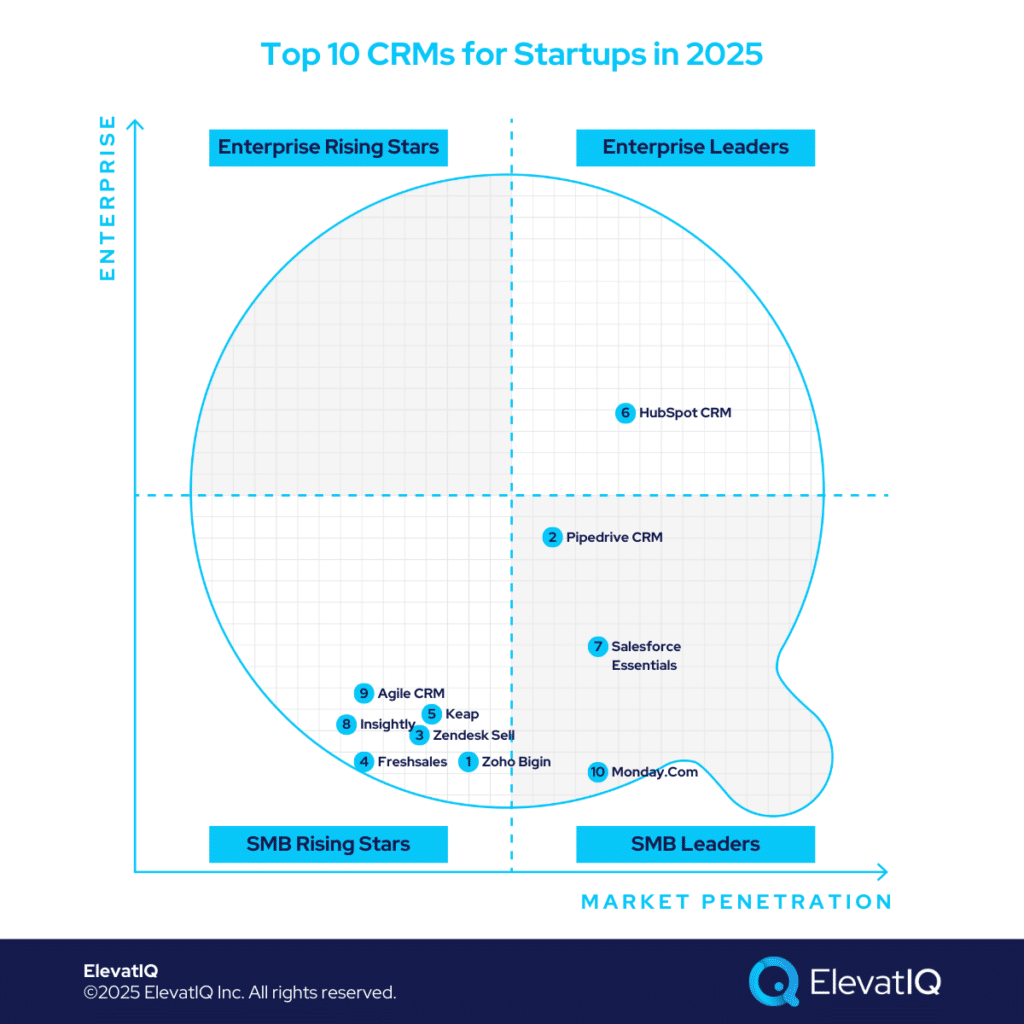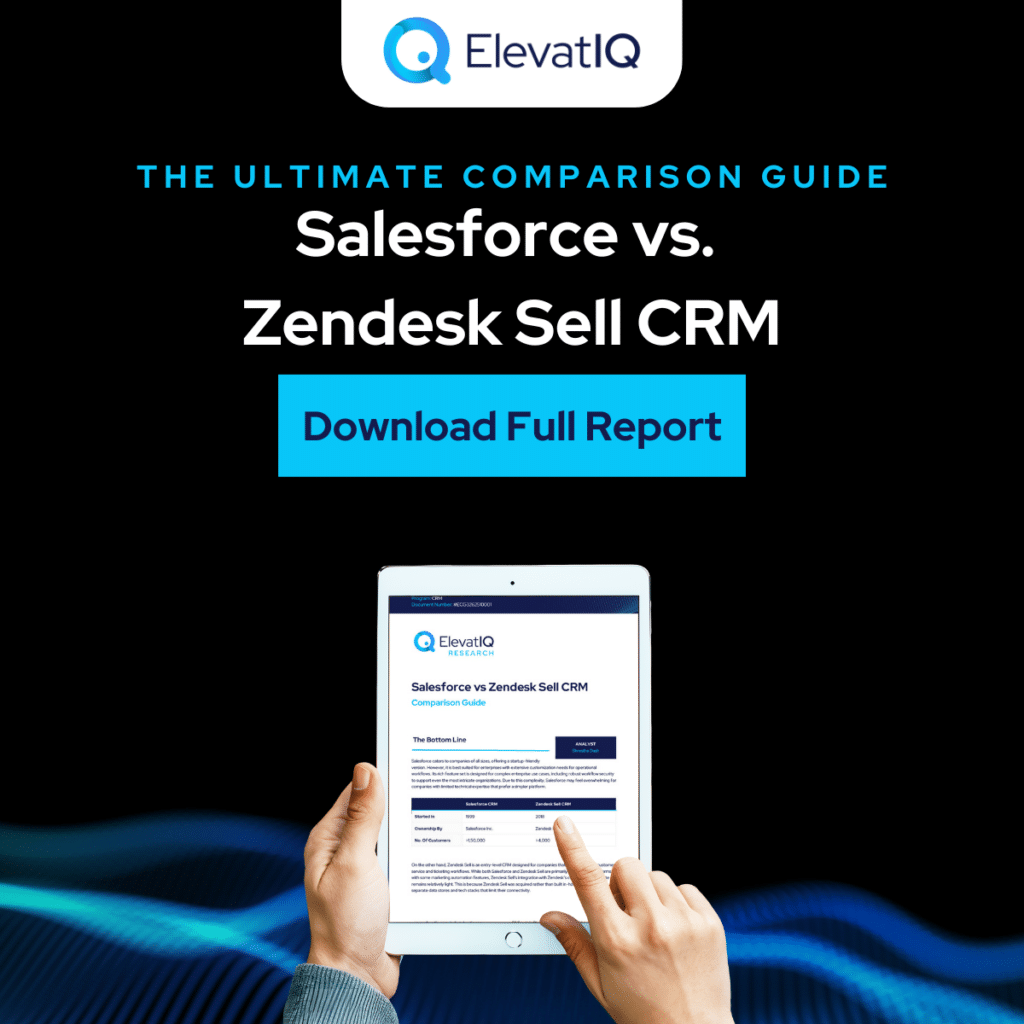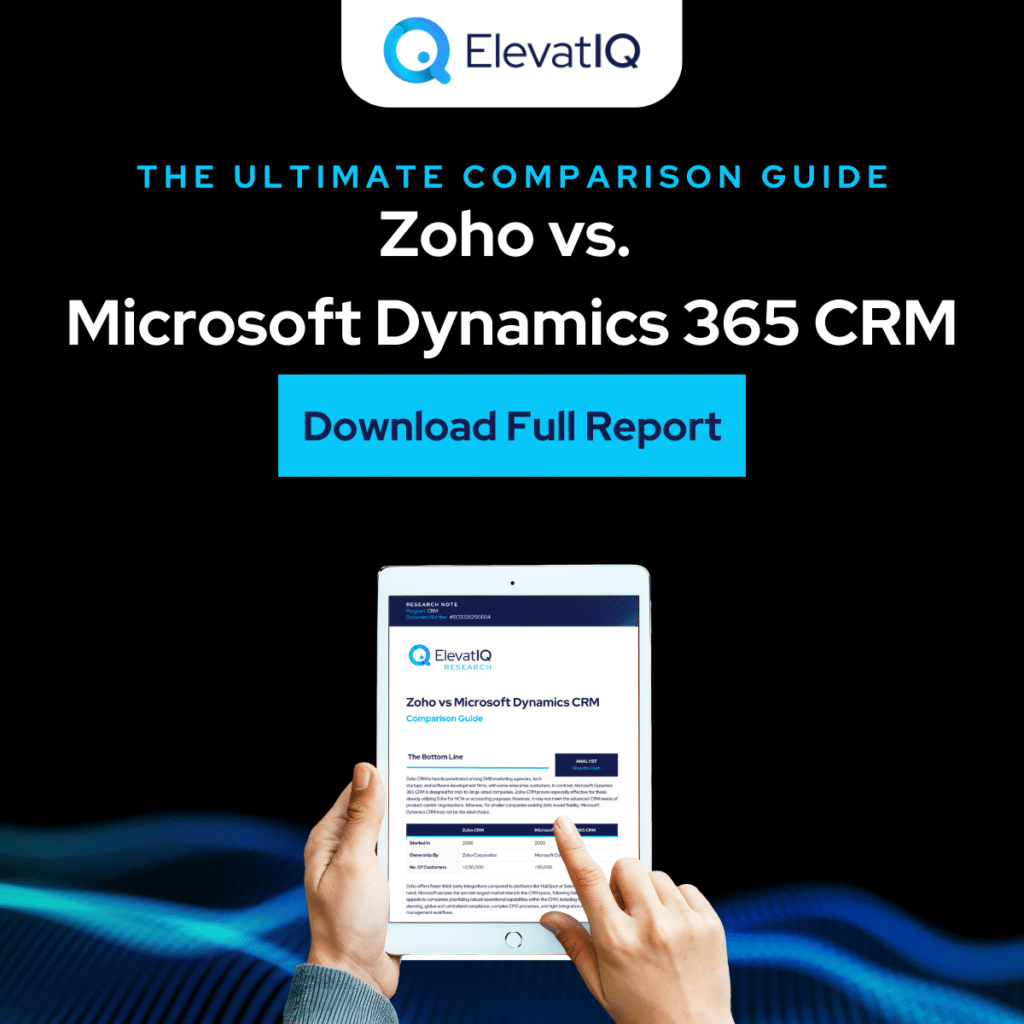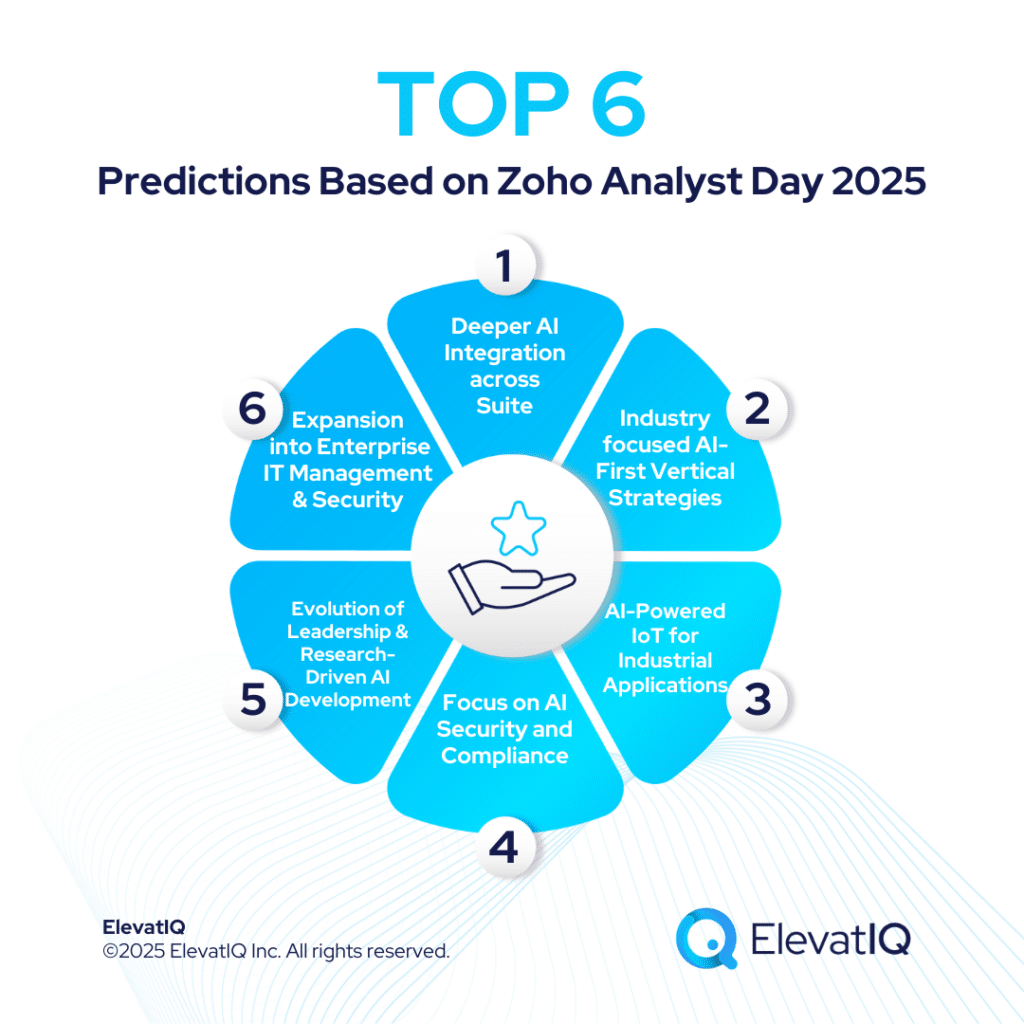Last Updated on April 13, 2025 by Sam Gupta
CRMs are often the first software that startups adopt, though their scope varies. For some companies, a CRM primarily tracks customer interactions, while for others, it serves to drive revenue. Generally, startup organizations tend to be lean, with minimal layers of management. Sales territories and compensation structures are usually flexible, as early-stage startups may lack a broad customer base to establish streamlined sales and marketing processes.
While most CRMs are likely to support cookie-cutter sales processes, each industry vertical and business model presents unique challenges, requiring significant customization beyond basic CRM functionality. One major distinction tends to be between B2B and B2C models: CRMs designed for B2B often focus on content-centric use cases, while those for B2C prioritize integration with commerce-centric workflows. The focus on products versus services also plays a role. For product-based companies, CRM processes may overlap heavily with eCommerce and ERP systems, whereas service-based companies may require CPQ processes and their unique industry-specific integrations.

CRM systems generally fall into two categories: those designed for upstream marketing and those for operational use cases. CRMs tailored to upstream marketing tend to feature highly flexible data models, but they often lack the structure for customer-facing transactions. In contrast, CRMs designed for operational purposes can be more challenging due to complex configurations that accommodate territories, hierarchical audiences, and varied customer-focused workflows. Selecting and implementing a CRM requires both expertise and an implementation budget, resources that many startups lack—often resulting in multiple CRM systems being adopted across different teams. Let’s explore some options for CRMs for startups that are likely the best fit given these constraints.

Criteria
- Definition of startups. Less than $10 mil in revenue or 20-25 employees. Founder leading most of the functions. 1-2 employees for each function, including sales, marketing, and customer service. $0-30K implementation budget.
- Overall market share/# of customers. Higher market share among startup companies ranks on this list.
- Ownership/funding. Refined product roadmaps and management’s clarity with product vision rank higher on our list.
- Quality of development. Modern cloud-native capabilities and unified user experience rank higher on our list.
- Community/Ecosystem. Communities with a heavy presence in the startup market segment would drive a higher ranking for the product.
- Depth of native functionality for specific industries. Publisher-owned last-mile capabilities for specific industries, as opposed to relying on add-ons, rank higher on this list.
- Quality of publicly available product documentation. The quality of user and developer documentation drives a higher product ranking.
- Startup market share. Specific market share among startup companies drives a higher ranking on this list.
- Ability to natively support diversified business models. The diversity of the product to accommodate many business models drives higher on this list.
- Acquisition strategy aligned with startups. Recent acquisitions aligned to the startup market segment drive higher rankings on this list.
- User Reviews. User reviews from the startup market segment drive a higher ranking on this list.
- Must be a CRM product. It can’t be a module of an ERP system. It must be a best-of-breed CRM system, preferably recognized in the CRM category by leading analyst firms.
10. Monday.com
Monday.com is primarily a project management tool, but it also offers some CRM functionalities. One advantage of Monday.com is its use of boards, similar to Trello, allowing you to view the same information in different formats, such as boards, lists, or calendars. However, its CRM capabilities are relatively limited, and it does not offer all the advanced features you might expect. Hence, Monday.com has secured the #10 spot on our list of top CRMs for startups.
Strengths
- Great capabilities to build simple funnels. If your goal is to handle simple funnels, lead management, and opportunity management, all of these can be highly customized.
- Workflows and integration. Pre-baked upstream marketing capabilities are significantly limited, requiring customization and consulting help on the basic technical platform to enable them.
- Ecosystem. The overall ecosystem will be quite widespread. However, if you consider the level of penetration within the marketing tech stack, it won’t be as extensive as tools like HubSpot.
Weaknesses
- Relational relationships. Each spreadsheet is an independent object. While some basic linking of these objects is possible, the data model is not relational, posing data integrity issues and limiting its use for transactional use cases.
- Upstream marketing-focused integration. Upstream marketing-focused integration, such as tight embeddedness with data platforms and enabling autonomous intent-centric workflows, would be a challenge. The integration with ad-centric platforms to enable building and targeting specific audiences based on layers present inside HubSpot might be challenging.
- Omnichannel marketing traceability. Due to the limited integration layers available with different channels, such as with HubSpot, omnichannel traceability would be an issue.
9. Agile CRM
Agile CRM is an excellent entry-level system for startups, especially for contact management and email lead management. It lacks complex features and is generally more affordable, with a simpler processing and data model. This makes it particularly advantageous for startups looking for an affordable CRM solution. Thus, Agile CRM secures the #9 spot on our list of top CRMs for startups.
Strengths
- Affordable for startups. The overall UI is quite intuitive, making it easy to configure, manage, and use without the need for consulting assistance.
- Intuitive. The user interface is so intuitive that you won’t need consulting to configure, manage, and use it.
- Comprehensive capabilities for startups in one solution. Additionally, it offers wide-ranging capabilities within a single solution, reducing the number of data siloes.
Weaknesses
- Advanced features such as email templates not as robust. Advanced features like email templates may not be as robust as those found in systems like HubSpot or MailChimp.
- Ecosystem integration such as ZoomInfo. The ecosystem integration, particularly with upstream marketing tools, won’t be as robust as with systems like HubSpot or Salesforce. Integrations with data platforms like ZoomInfo or Apollo are also less common.
- Poorly documented. The solution lacks comprehensive documentation, which is common with less popular or less well-funded systems. This can present a challenge, especially if you’re managing the implementation on your own, as the limited resources may make it harder to navigate the process.

8. Insightly
Insightly is another small solution, similar to Agile CRM or Freshsales. However, its unique advantage lies in its strong analytics component, which provides more insights and is included as part of the solution. Given its unique custom object tailored for specific use cases, It would also be more suitable for industries that need to be interlocked with CRM workflows. Being a prescriptive platform, it might not be most suitable for companies seeking a customizable solution with non-standard customer-facing workflows. Therefore, Insightly has secured the #8 spot on our list of top CRMs for startups.
Strengths
- Custom objects and core project objects. The inclusion of custom and core project objects is a common trend across many systems in the market that combine project management features within the solution.
- Analytics. Compared to other platforms, which might barely provide detailed reporting pre-baked or infrastructure without much development or unnecessary customizations, it has a very detailed analytics layer.
- Intuitive. Given the simpler data and process model designed for smaller companies, the platform is relatively intuitive.
Weaknesses
- Integration issues. The ecosystem is not as widely adopted, which may lead to various integration issues, as users have reported in forums.
- Limited ecosystem. It’s also relatively limited and more cost-effective, but this could present challenges in terms of connectivity and functionality.
- Cheaper but expensive for startups, tricky consumption-based pricing per lead. While the solution is generally cheaper, it may still be viewed as costly for startups due to its consumption-based pricing, which can be difficult to estimate. As a result, this pricing model might end up being more expensive than other alternatives.
7. Salesforce Essentials
Salesforce Essentials is a larger platform with more advanced security and permission layers, and typically, you would need consulting assistance to set it up and use it effectively. Designed to be a customizable platform for various industries, Salesforce includes pre-built objects for many sectors. There are numerous solutions built on top of these objects, making it a highly robust system. However, for startups, these extensive capabilities may be unnecessary, as they can make the platform overly complex. This complexity can increase implementation costs and make it harder to use. Thus, Salesforce Essentials has secured the #7 spot on our list of top CRMs for startups.
Strengths
- Same interface as the enterprise product. Companies can stay on the same interface as they grow; although the startup product is completely different from the enterprise one, the interface and UX are the same, making the transition easier with Salesforce.
- Custom objects. Its customizability helps industries where ad-hoc customer-centric workflows would be common.
- Report and list builder. The report and list-building functionality would not have the same limitations as those found with other smaller platforms, such as limited layers for complex reporting or fewer reportable objects exposed.
Weaknesses
- Marketing automation is not as embedded as other products. The marketing automation product lacks embedded workflows with the core CRM product, making it challenging for companies requiring tighter collaboration of marketing and sales processes.
- Integrations not as intuitive. The integrations would not be as intuitive and as easy because of the legacy technology, requiring developer help.
- Might need consulting help. The UX doesn’t have the same low-code/no-code capabilities as with other products as with HubSpot, requiring expensive consulting help to customize.
6. HubSpot CRM
HubSpot and Salesforce are not ranked as the top choices for startups primarily due to the consulting costs required for these platforms. While they offer more advanced capabilities, they may not be the best fit for startups. HubSpot, in particular, is designed with a focus on upstream marketing activities, offering a stronger ecosystem, but it may not be the best fit for companies with complex audiences or transactional customer-facing workflows. Therefore, HubSpot has secured the #6 spot on our list of top CRMs for startups.
Strengths
- One tool to centralize all customer channels. Whether it’s email, text, ad-centric channels, or social media, into a single model, allowing you to integrate marketing automation and CRM within the same product.
- Ecosystem and integration. HubSpot is specifically designed for upstream marketing activities, where it excels due to its extensive ecosystem integration.
- Comprehensive options to integrate with CMS. HubSpot offers its own CMS and database, which is a significant advantage if you’re looking to build a custom, sophisticated website.
Weaknesses
- Data model not friendly for complex operational use cases. The limitations with HubSpot primarily lie in its data model, which isn’t well-suited for complex operational use cases.
- Limited customizability. Custom objects come with significant limitations, particularly around parent-child hierarchies and other advanced configurations.
- It might be too difficult and expensive for startups despite the initial free option. Pricing escalates quickly, even though there is a free plan.
5. Keap
Keap is a simplified solution, similar to the previous three, and follows a comparable design philosophy, making it a good fit for startups. Its key strength lies in HIPAA compliance, which is particularly important for companies in the healthcare sector. If you’re handling patient data or tracking patient interactions, your CRM will likely need to work alongside the EHR system. Thus, Keap has secured the #5 spot on our list of top CRMs for startups.
Strengths
- HIPAA compliance. Healthcare companies are focused on enhancing both customer and patient experiences, which is why they are looking to implement CRM systems that will work alongside their EHR systems.
- Workflows. Keap offers workflows. However, the level of detail in those workflows can vary. While smaller systems like MailChimp provide decent workflows, they may lack more advanced features, such as the ability to sequence workflows or apply segmentation and branching logic within them.
- Building complex funnels. Keap allows building complex funnels compared to other smaller platforms that are primarily designed for marketing automation.
Weaknesses
- Limited direct integration with data apps. Particularly with data apps and integrations with other CMS providers, such as DAM or search providers, the current marketing tech stack has many players. While some integrations are available, the ecosystem may not be as extensive, and direct integrations could be limited.
- Contact-centric with limited B2B hierarchies. The overall object hierarchy is highly contact-centric, which can be a drawback for B2B scenarios where complex company structures and customer master hierarchies are needed. This CRM focuses heavily on contacts, which is common in most CRMs within the startup space as they aim to simplify the structure.
- Limited options with landing page builders. Another limitation with Keap is that the landing page builder may not be as robust or feature-rich compared to other solutions.

4. Freshsales
Freshsales is part of the FreshBooks portfolio, aligning with a trend where many accounting firms are acquiring email automation and CRM solutions to expand their offerings. This strategy helps them compete with companies like Zoho and Odoo, providing a complete, relatively user-friendly business suite. Freshsales would fall under a simpler-to-use platform for startups with limited implementation budgets and their users with limited experience using a CRM. Therefore, Freshsales has secured the #4 spot on our list of top CRMs for startups.
Strengths
- Omnichannel campaign management email, phone, whatsapp. A key strength is its omnichannel campaign management, integrating email, phone, WhatsApp, and more—channels that are essential in the B2C market.
- Intuitive. The data model is designed from the perspective of smaller businesses, making it easier to use.
- Great for companies implementing in DIY mode. The simpler data model without complicated hierarchies (and audiences) makes it easier for startups to implement in the DIY mode (without requiring as much consulting help).
Weaknesses
- Limited permission layers. The permission layers are generally limited, but this makes the solution easier to use since you won’t have to manage numerous permissions.
- Limited workflow capabilities such as edits. This limitation is more suited for the startup segment, as the workflow capabilities are somewhat restricted, especially when it comes to editing documents. These features may not be as strong compared to other solutions.
- Limited advanced capabilities such as fonts in email templates. The advanced capabilities, particularly with fonts in email marketing, may pose some limitations if you have specific or unique fonts you’d like to use.
3. Zendesk Sell
Zendesk Sell is a platform similar to Insightly or Freshsales, offering comparable features. It’s a great fit for companies already using Zendesk for customer service, as it provides integration between the two tools. This is particularly useful for managing customer service workflows in industries like technology, media, and retail, where customer service is a major function, especially in the post-sales phase. Zendesk Sell leverages base CRM to offer its CRM capabilities, making it an effective solution for those in need of both customer service and CRM functionalities. Thus, Zendesk Sell has secured the #3 spot on our list of top CRMs for startups.
Strengths
- Intuitive interface. The interface’s design is for prescriptive use cases, making it ideal for startups seeking a simpler-to-use interface.
- Easy and inexpensive implementation. The prescriptive interface limits the number of layers, generally present with scalable platforms accommodating many business models. This design makes it easier and inexpensive for startups to implement.
- Easier to train. It will be an ideal fit for companies and their users with limited technical expertise without as steep a learning curve as other advanced platforms.
Weaknesses
- Glitchy. Users have reported occasional glitches with the system, but sometimes, these glitches could be because of poorly implemented systems or pre-maturely released features.
- Zendesk Sell and Support are not tightly integrated. The integration model is similar to Salesforce’s approach with marketing automation and CRM, and the Zendesk-Sell integration operates in much the same way. Rather than an immersive integration, they primarily exchange data fields.
- Marketing automation. The capabilities are quite limited, as are advanced CRM features—which startups likely won’t need anyway. These features are absent from the tool as it focuses on simplifying the overall model.

2. Pipedrive CRM
Pipedrive CRM is similar to Zendesk Sell, designed for simpler use cases, particularly for startup companies that prefer a DIY approach. One of its strengths is workflow automation, which is generally not available with smaller CRM systems. However, it may not offer the same level of depth in automation capabilities as HubSpot. Hence, Pipedrive CRM secures the #2 spot on our list of top CRMs for startups.
Strengths
- Workflow Automation. The main strength lies in basic automation workflows such as updating deal value or advancing a deal stage.
- Embedded CPQ Workflows. A key strength of Pipedrive is embedded CPQ and document signature workflows, which are critical for some companies requiring tighter embedded and collaboration of these workflows. However, the use cases for CPQ and their integrations might differ for each industry, limiting the use of Pipedrive for those industries unless they use a third-party CPQ.
- Integrated data platform. Pipedrive has a very similar acquisition and integration strategy with data platforms just like HubSpot, making it an ideal fit for embedded data-driven use cases without requiring expensive customization.
Weaknesses
- Weak data structure for complex B2B startups. Businesses requiring complex audiences or hierarchies would struggle with Pipedrive because of the limited layers of its data model.
- Bloated data model for companies not needing CPQ or document workflows. The CPQ and document workflows would be unnecessarily bloated for companies requiring a specialized CPQ.
- Limited customizability. The customization options are likely to be inferior to HubSpot but superior to systems such as Zendesk or Freshsales. So, it may not be the best fit for companies requiring non-standard sales processes.
1. Zoho Bigin
Zoho Bigin is ideal for companies seeking a very user-friendly CRM. The strengths of Zoho Bigin include a process and data model similar to other tools in the startup segment. In comparison, their main CRM product might require expensive consulting help and might be challenging for users with limited experience in CRM-driven processes, increasing adoption risks. This makes Zoho Bigin easier to implement in a DIY mode, reducing the need for consulting help, though its simplicity also brings some limitations. Therefore, Zoho Bigin has secured the #1 spot on our list of top CRMs for startups.
Strengths
- Super easy to use. Just like Freshsales and Zendesk Sell, Zoho Bigin is a prescriptive platform designed for users with limited CRM experience.
- Affordable. Limited layers of data model reduce implementation complexity, making it affordable for companies limited with implementation and consulting budgets.
- Integration with other Zoho apps. It integrates seamlessly with other Zoho applications, making it a strong entry-level platform. This integration is especially beneficial for companies not yet ready for a full ERP system, as they gain access to a wide range of applications within the same portfolio.
Weaknesses
- Inflexible. One limitation of this solution is its lack of flexibility and limited customizability. This design choice aims to keep the platform simple, so while it’s not strictly a drawback, it may pose challenges if extensive customization is a priority. In such cases, this platform may not be the best fit.
- Integration and ecosystem require external tools. You may consider opting for a more advanced tool within Zoho’s portfolio or potentially another CRM, as the integration capabilities and ecosystem might require external tools like Zapier for full functionality.
- Limited user-profiles and security options. They won’t offer as many native integrations, and the options for user profiles and security will be more limited. However, for startups, these features are typically not essential.

Conclusion
In conclusion, choosing the right CRM for your startup involves balancing functionality, ease of use, and affordability while aligning with your business model and industry needs. The options outlined above cater to various requirements, from simple contact management to complex workflows and data integration. Each CRM has its strengths and weaknesses, emphasizing the importance of assessing your priorities—whether it’s budget, scalability, or specific features like automation and integration.
For startups with limited resources and a DIY approach, tools like Zoho Bigin and Freshsales provide intuitive, affordable solutions. On the other hand, platforms like HubSpot and Salesforce Essentials may appeal to startups aiming for robust capabilities and long-term scalability, albeit with higher implementation costs. Understanding your unique business challenges and growth trajectory will guide you toward the CRM that best supports your goals, setting the foundation for streamlined operations and sustained success. While this list offers valuable insights on CRMs for startups, seeking advice from an independent CRM consultant can greatly enhance the implementation success.









